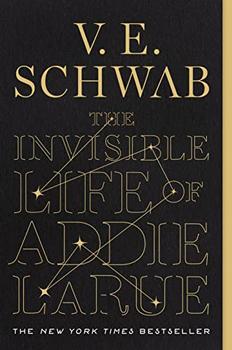Summary | Excerpt | Reviews | Beyond the book | Read-Alikes | Genres & Themes | Author Bio

A Novel
by Jake WolffConrad is a boy in love for the first time. His mother is dead; his father is a dying alcoholic. But things are finally looking up when a summer science project with his dreamy teacher Sammy turns into much more. His newfound happiness is short-lived, however, when Sammy is found dead of an apparent suicide. The student is left with a box of his teacher's notebooks pointing him toward the quest for an elixir of life, which might save his father's life. More than the notebooks, Conrad is left with questions: why would Sammy kill himself? Why do all the people he cares about die? What if the elixir of life works?
Much of the novel revolves around Conrad trying to pick up the pieces after his lover (and high school chemistry teacher) dies. The protagonist tells his story from decades in the future, acknowledging that the people in his adult life see the relationship as exploitative and that the law sees it as a crime. But he also says that he never found it inappropriate, and that, even as an adult, he considers his summer with Sammy a romance. As a reader, I felt uncomfortable with this facet of the story; it was hard to put aside the age gap and power dynamics of a teacher-student relationship. However, author Jake Wolff does not shy away from the problematic, unhealthy aspects of the relationship—these shine through even Conrad's lovestruck memories. While the relationship mostly serves to underpin the real plot of the novel, the hunt for the elixir of life, it is present enough across the pages that it might be a deal-breaker for some readers.
The History of Living Forever covers a great span of time and touches on a number of genres. It is in part an epistolary. Through the journals that Sammy leaves Conrad, the teacher's life story slowly emerges, breathing life into an absent character. It's also a coming of age story for Conrad, touching on his coming-out in rural Maine, his relationship to his friends and family, and his intellectual isolation. The novel also skillfully embeds scientific concepts into the narrative; the protagonist is an expert scientist, but his various scientific discussions never feel oversimplified or overcomplicated. For example, he describes drug interactions with the blood-brain barrier in a way that is technical enough to believe a scientist is explaining it, but it's also easy enough for laypeople to understand. There's also a component of the novel that takes place much later in Conrad's life, and Wolff creates a piece of medical technology that is believable, useful, and ominous. All of these stories blend together and echo each other thematically; Wolff asks big questions, and is unafraid to leave them for the reader to answer.
However, there are other narrative structures that feel less successful. Scattered throughout the novel are short chapters fleshing out the lives of historical figures that have sought the elixir of life. While these parts provide context for Conrad's quest and increase the scale of the adventure, they feel disconnected from the rest of the story, often distracting from the action at hand. With so many characters spanning across so many times, there are moments when point of view shifts unexpectedly, and it can sometimes cause confusion. For example, sometimes Sammy's journal entries get complete chapters, and other times there will be a section break and Conrad will resume narrating. While minor concerns, they do impact the overall pacing and flow.
As a novel of love, life, and death, A History of Living Forever sketches a story of impressive scale, but it is the closest, most human moments that are emotionally captivating: a father and his son, a boy struggling with loss, a pair of friends failing to relate to one another. Wolff takes readers on a journey, and, as it's said, sometimes the journey is more important than the destination.
![]() This review was originally published in The BookBrowse Review in July 2019, and has been updated for the
October 2020 edition.
Click here to go to this issue.
This review was originally published in The BookBrowse Review in July 2019, and has been updated for the
October 2020 edition.
Click here to go to this issue.

If you liked The History of Living Forever, try these:

by Leigh Bardugo
Published 2025
From the #1 New York Times bestselling author Leigh Bardugo comes a spellbinding novel set in the Spanish Golden Age.

The Invisible Life of Addie LaRue
by Victoria E. Schwab
Published 2023
Winner of the 2020 BookBrowse Fiction Award
In the vein of The Time Traveler's Wife and Life After Life, The Invisible Life of Addie LaRue is New York Times bestselling author V. E. Schwab's genre-defying tour de force.
Your guide toexceptional books
BookBrowse seeks out and recommends the best in contemporary fiction and nonfiction—books that not only engage and entertain but also deepen our understanding of ourselves and the world around us.